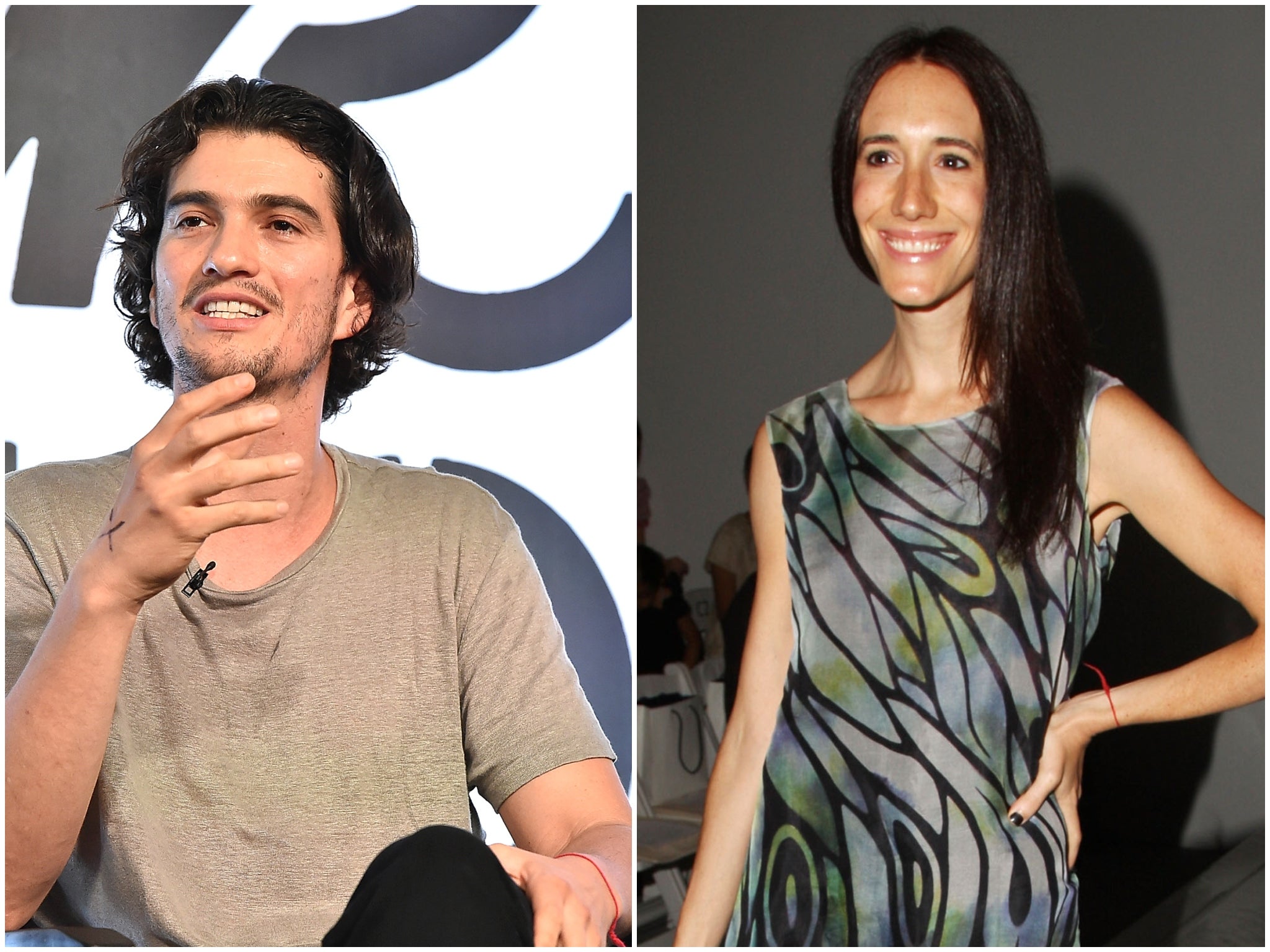
In the early 2000s, it was rare to see celebrities like Madonna, Ashton Kutcher and Lindsay Lohan without a piece of red string tied around their wrists. The bracelet signalled that they followed the mystical religion known as Kabbalah.
The religion appeared to reach its cultural peak during the first decade of the 21st century, which is when Rebekah Neumann, WeWork’s former chief brand and impact officer and wife of WeWork co-founder, Adam Neumann, joined.
In WeCrashed, the new Apple TV+ series which depicts the rise and fall of the co-working giant, you can see Rebekah (played by Anne Hathaway) wearing the thin red string around her wrist while guiding a meditation class.
Rebekah and Adam met in 2007, when she was still Rebekah Paltrow (she is the first cousin to Gwyneth), and she quickly introduced Adam to the religion.
And while the Neumanns incorporated their Kabbalah beliefs into the WeWork empire, over the ensuing decade, many other celebrities fell out of love with the religion.

What is Kabbalah?
Kabbalah has long been associated with Judaism. The word itself comes from the Hebrew word meaning “received knowledge” or “tradition”.
Kabbalah followers, or Kabbalists, say their beliefs date back to the origins of the Torah and they have been an accepted part of Judaism since the 12th century.
Kabbalist’s beliefs have been described as “mystical” as the practice focuses on direct communication with God through solitary study.
According to the Kabbalah Centre’s website, Kabbalah is “an ancient wisdom that provides practical tools for creating joy and lasting fulfilment. It’s an incredible system of technology that will completely change the way you look at your world”.
When did Kabbalah become popular?
The practice became popular in the US in the sixties when a rabbi, Philip Berg, began studying the religion during a trip to Israel in 1962.
Berg subsequently opened the Kabbalah Centre, which saw Kabbalah in the US focus more on personal improvement and spiritual happiness. He ran meditation classes and launched a Kabbalah 101 self-study class.
The way Berg ran his Kabbalah centres meant it was more easily digestible, as it didn’t require people to learn Hebrew in order to practice the religion. Instead, he published his interpretations of ancient Kabbalah texts.
However, Berg’s teachings had many critics. Rick Alan Ross, executive director of the Cult Education Institute, told Broadly that most of the Kabbalah Centre’s teachings have “no basis” in Jewish text.
He added: “Berg’s teachings represent his own idiosyncratic combination of beliefs. For example, that scanning the pages of the Zohar, even when you cannot read Hebrew, somehow will imbue you with supernatural power.”
Which celebrities followed Kabbalah?
As well as Madonna, other celebrities that have followed Kabbalah include Ashton Kutcher and ex-wife Demi Moore, Lindsay Lohan, Monica Lewinsky, Ariana Grande, James Van Der Beek and Donald Trump’s ex-wife Marla Maples.
Other celebrities who have been associated with the religion include Britney Spears, Mick Jagger, Naomi Campbell, Mary-Kate Olsen, Paris Hilton and Elizabeth Taylor.

In 2014, Grande told the Telegraph that she turned to Kabbalah after her brother was “rejected by the Catholic church” for being gay.
“When my brother was told that God didn’t love him I was like, ‘OK, that’s not cool.’ They were building a Kabbalah centre in Florida so we both checked it out and really had a connection with it,” the singer said at the time.
“Since then, my life has unfolded in a really beautiful way, and I think that it has a lot to do with the tools I’ve learned through Kabbalah, I really do.”
In 2003, Madonna spent £3.5 million on a London townhouse she intended to turn into a Kabbalah centre.
“I think Kabbalah is very punk rock,” she said at the time. “It teaches you that you are responsible for everything. We don’t realise there is a bigger system at work. Everything that comes to you is for a reason – and I think that’s pretty revolutionary.”
When Berg died in 2013, the singer sent an email to The New York Times which read: “I learned more from him than any human I have ever met.”
She added: ‘“This one concept that he taught me, and that Kabbalah teaches, is that you have to take responsibility for your life. You can’t blame other people for what happens. You are in charge of your destiny.”
Kutcher and then-girlfriend Mila Kunis were also present at the funeral. It’s not known which celebrities, if any, still follow Kabbalah or attend the Kabbalah Centre.
What does the red string Kabbalah bracelet mean?
The red string worn around the wrist is the most recognisable sign of the Kabbalah movement.
It’s often worn on the left wrist and is said to ward off any “evil and misfortune” that could be “caused by the evil eye”.
What scandals was the Kabbalah Centre involved in?
Model Jerry Hall revealed in a 2005 interview with Index magazine that Kabbalah Centre followers who went through the “Door of Miracles” were expected to hand over 10 per cent of their income.
She said: “We had a fantastic time with the Kabbalah Centre for about a year. They give very practical advice on day-to-day stuff, like how to be a better parent. But we couldn’t go through the Door of Miracles unless we gave the Kabbalah people ten percent of our money, so we couldn’t study it any more.”
Money was one of the reasons why Madonna seemingly cut ties with the Centre too. According to a NewsWeek investigation in 2011, Madonna and Berg’s son Michael raised $18 million (£13.6 million) through their joint Raising Malawi Foundation.
They had planned to build a girls’ school in Malawai but the project folded after $3 million (£2.2 million) was spent at the LA Kabbalah Centre instead. This led to Madonna taking oversight of the foundation.
The Centre also saw a former student successfully sue Yehuda Berg, Philip Berg’s son.
The student alleged that Yehuda had tried to drug and sexually assuault her. Yehuda and and Kabbalah Centre were ordered to pay $177,500 (£134,450) in damages in 2015.
At the time, a Kabbalah Centre spokesperson told Broadly: “Yehuda has not been involved with the Kabbalah Centre since he resigned in 2012. When Yehuda left the Centre, he made clear that he was doing so because his departure was in the best interests of the Centre and in the best interest of his own personal effort to change his life.”
What is Rebekah Neumann’s history with Kabbalah and how was it introduced at WeWork?
It’s unsure when Rebekah Neumann began taking classes at the Kabbalah Centre in Los Angeles, but it’s thought to be when she moved out there to try and make it as an actor in the early 2000s.
It was Rebekah who introduced Adam to the school of thought, and it was at the Kabbalah Centre where Adam met Kutcher, an early investor of WeWork.
A close friend of Rebekah’s told Bustle in a 2020 profile: “There’s this saying in Kabbalah that the woman is the CEO of the relationship, and she was 100 per cent the CEO of the relationship.”
As chief brand and impact officer, Rebekah funnelled the religion into the WeWork offices too. The Bustle report says Adam “expected deputies to show up for Kabbalah meditation classes”.
A separate report from the Wall Street Journal claimed that Adam would bring teachers from the Kabbalah Centre to company offices and retreats to teach executives. Adam was also thought to have formed WeWork’s company values from what he learned through the religion.
In a 2013 interview with The Real Deal, Adam said: “I noticed that in the Kabbalah community, people were really helping each other. I wanted to translate that into business.”
A spokesperson for Adam later denied that Kabbalah had influenced WeWork’s philosophy, mission or business decisions.







